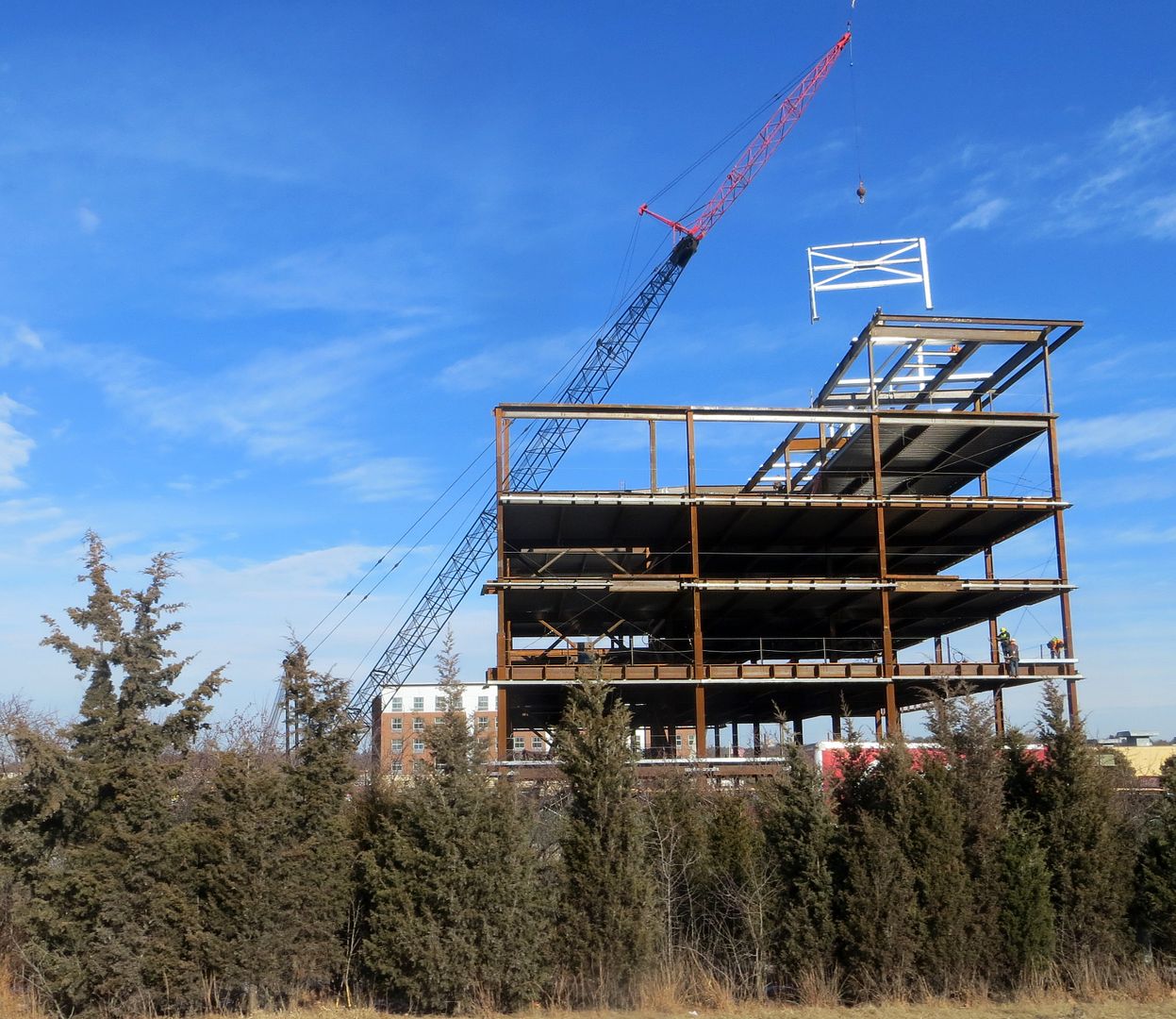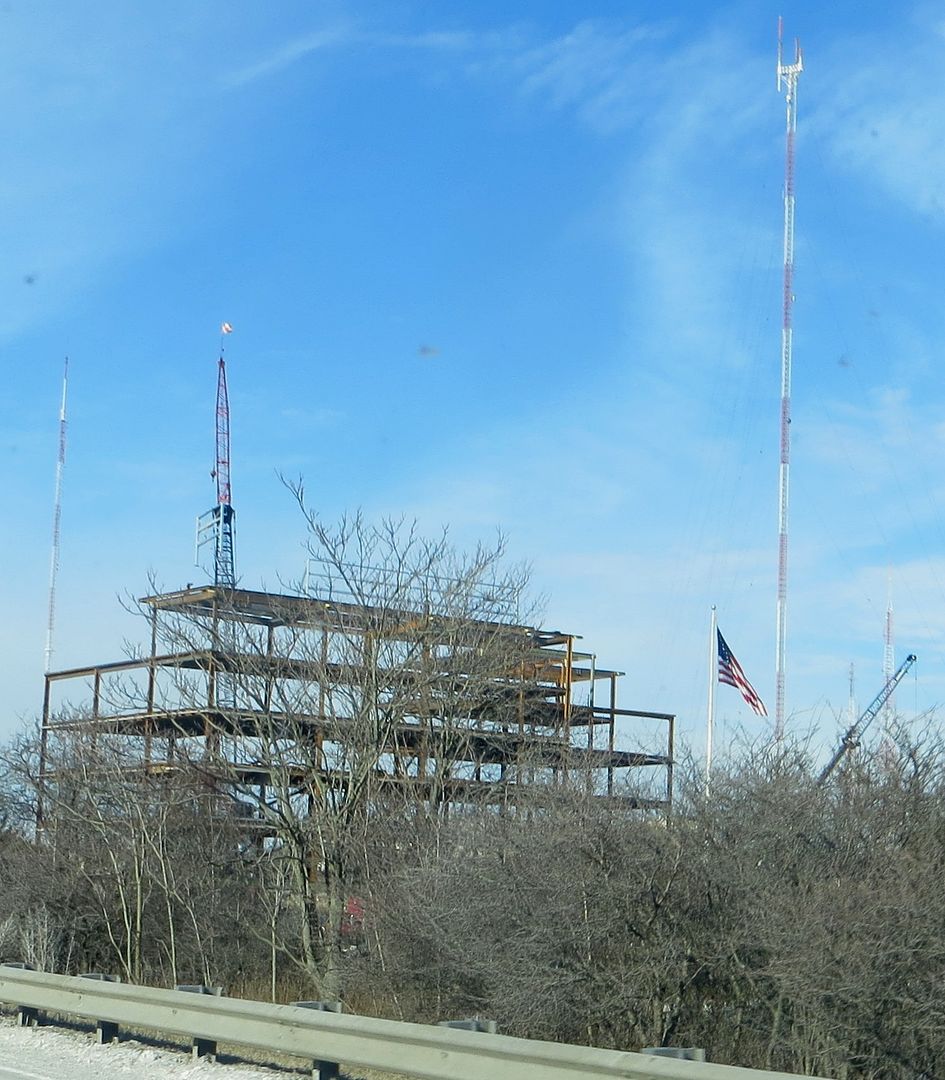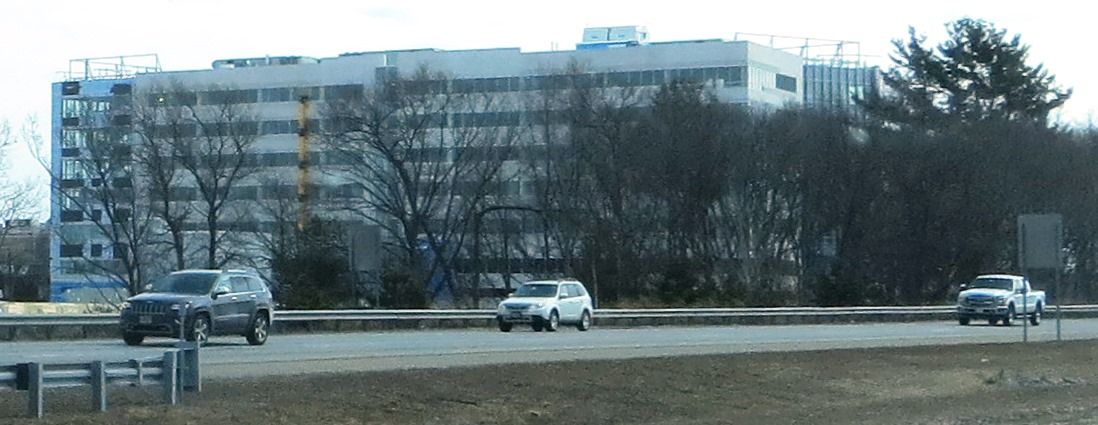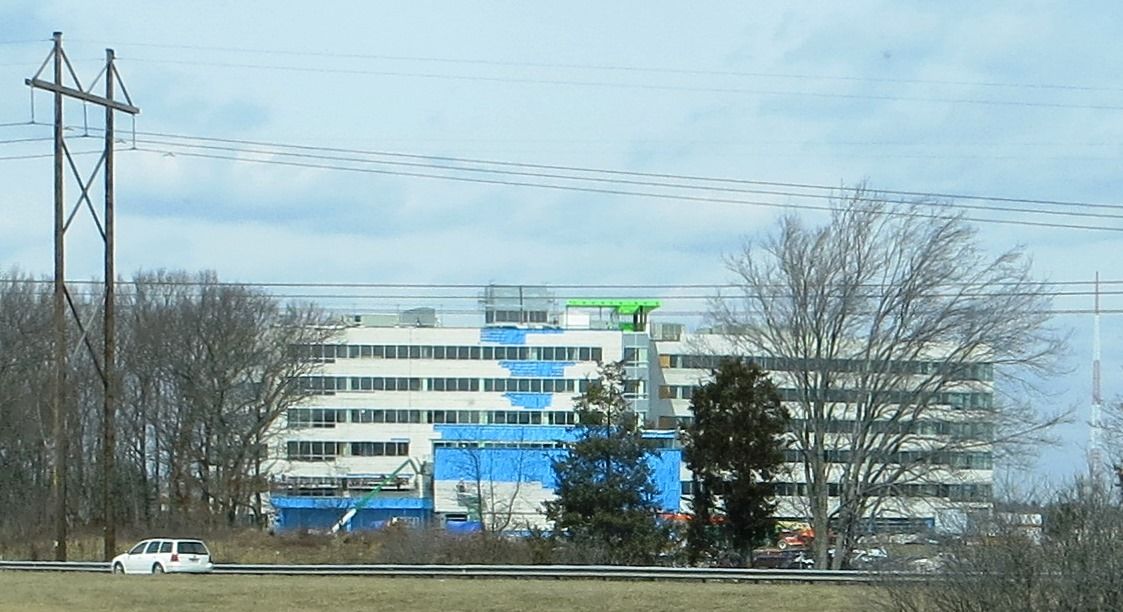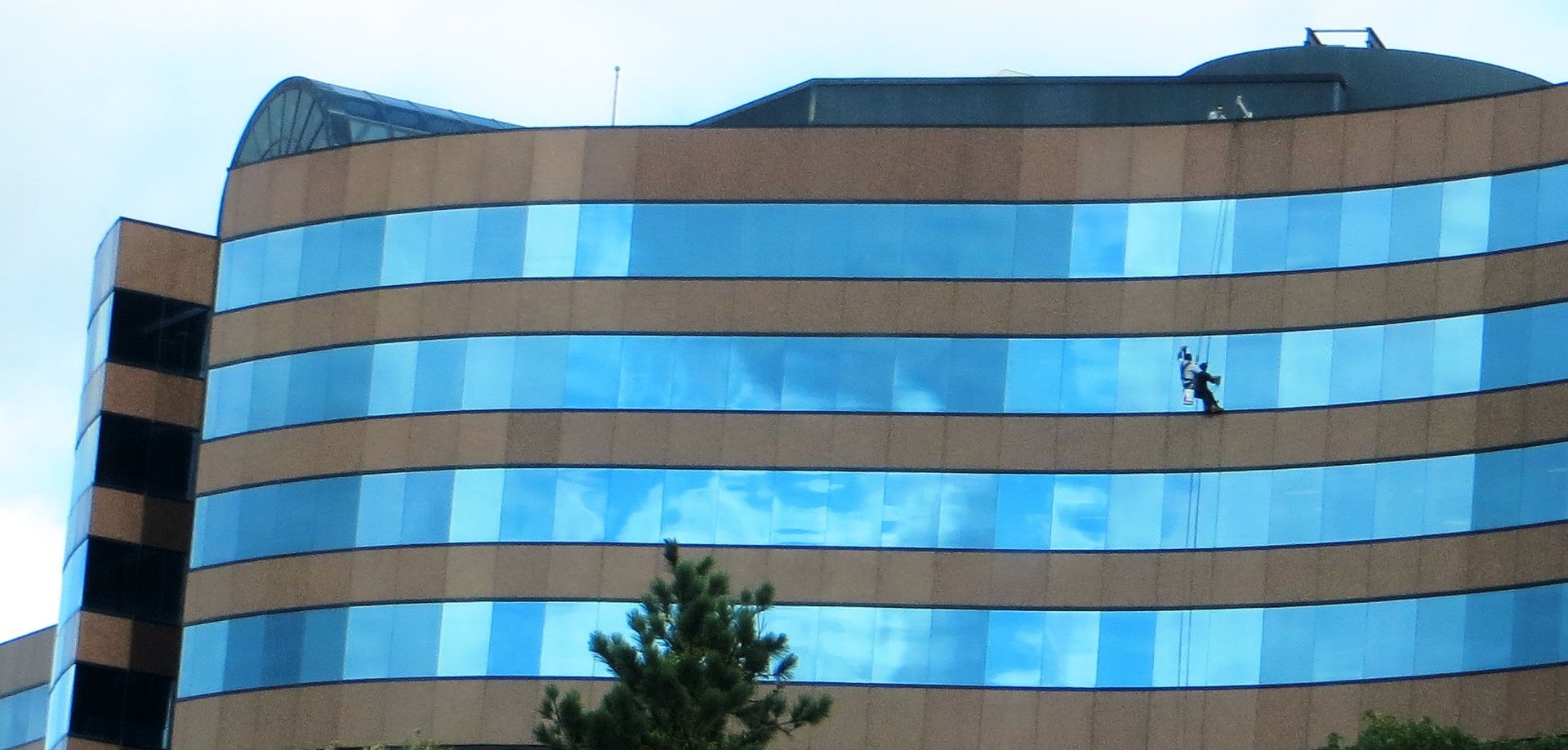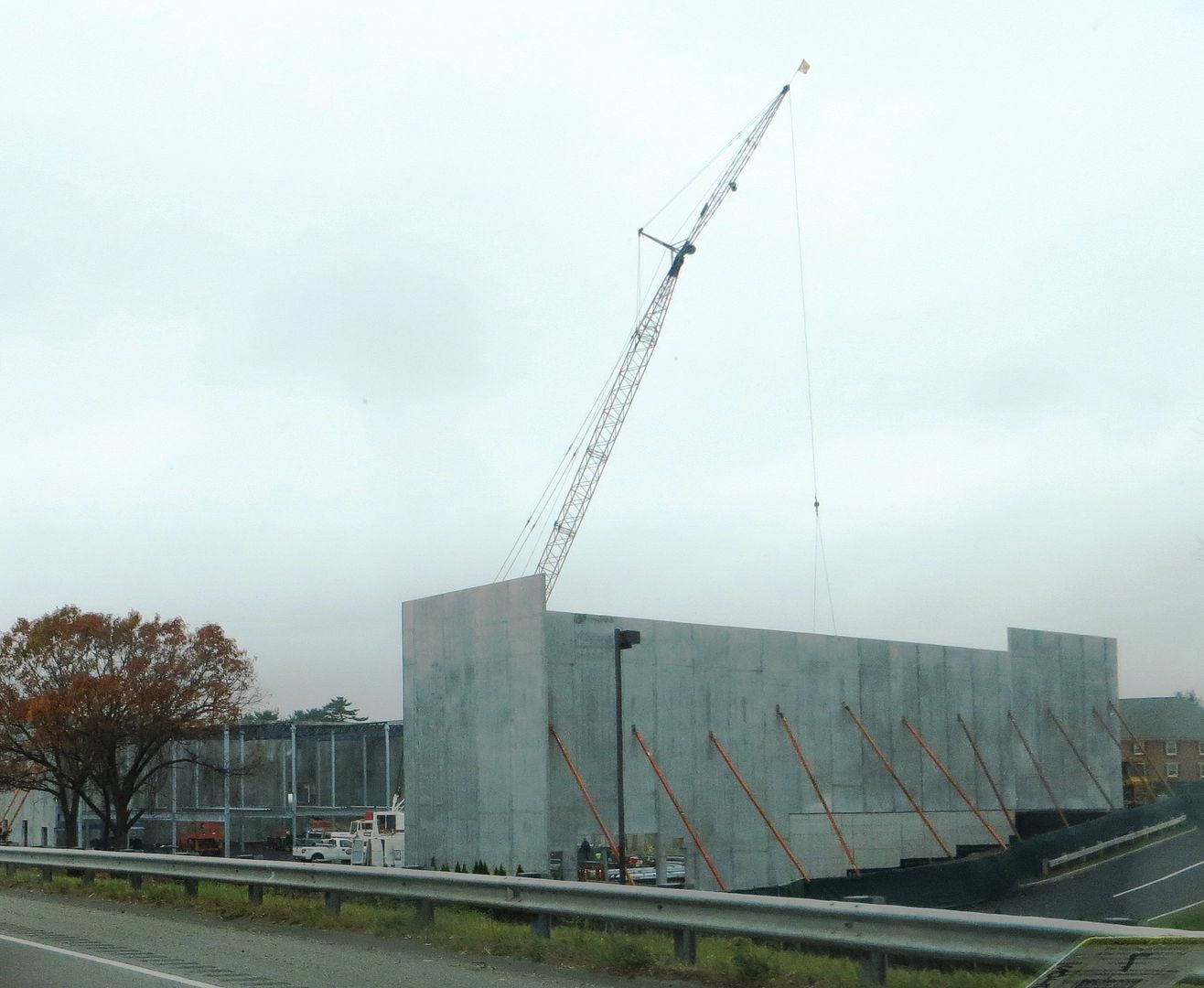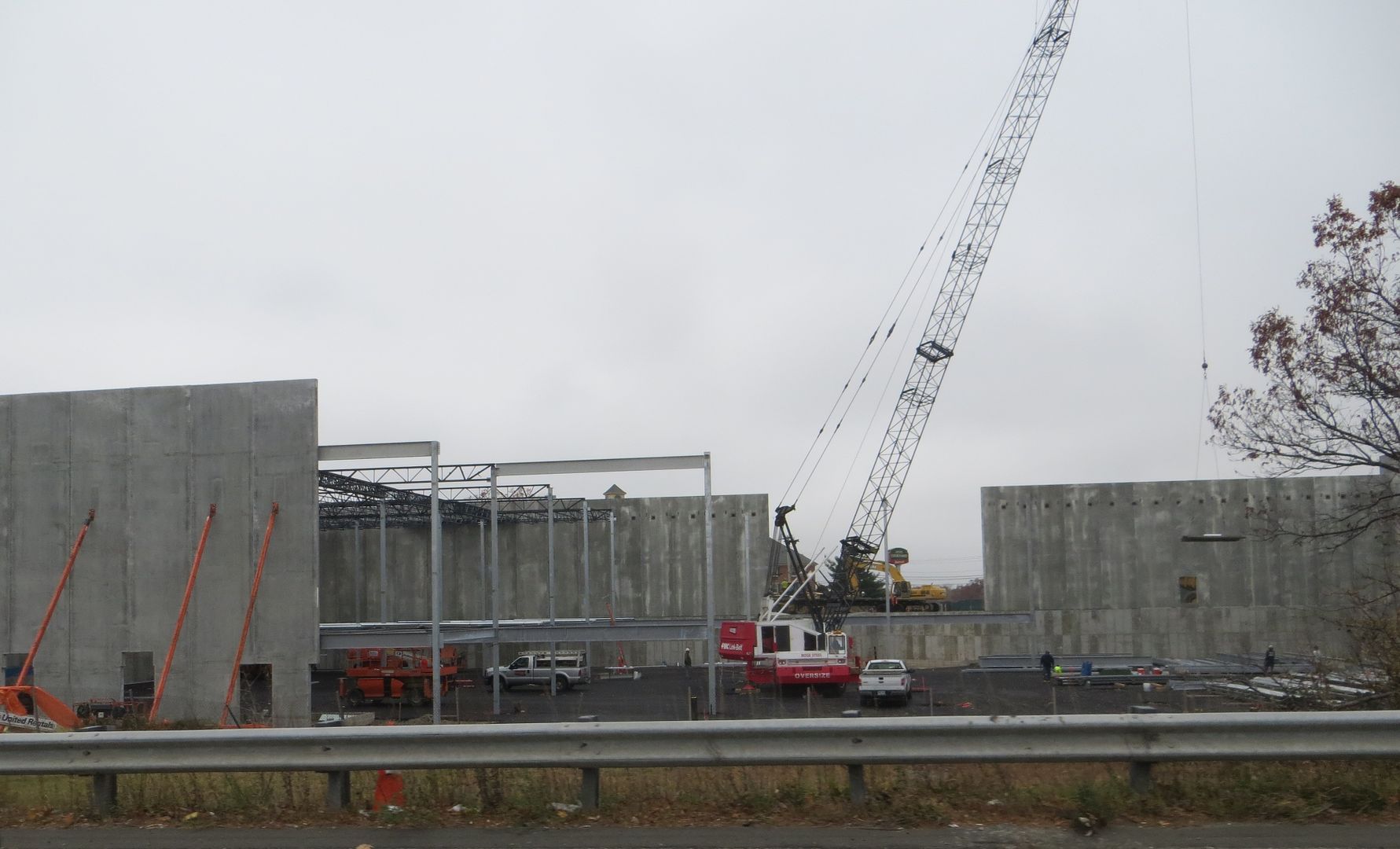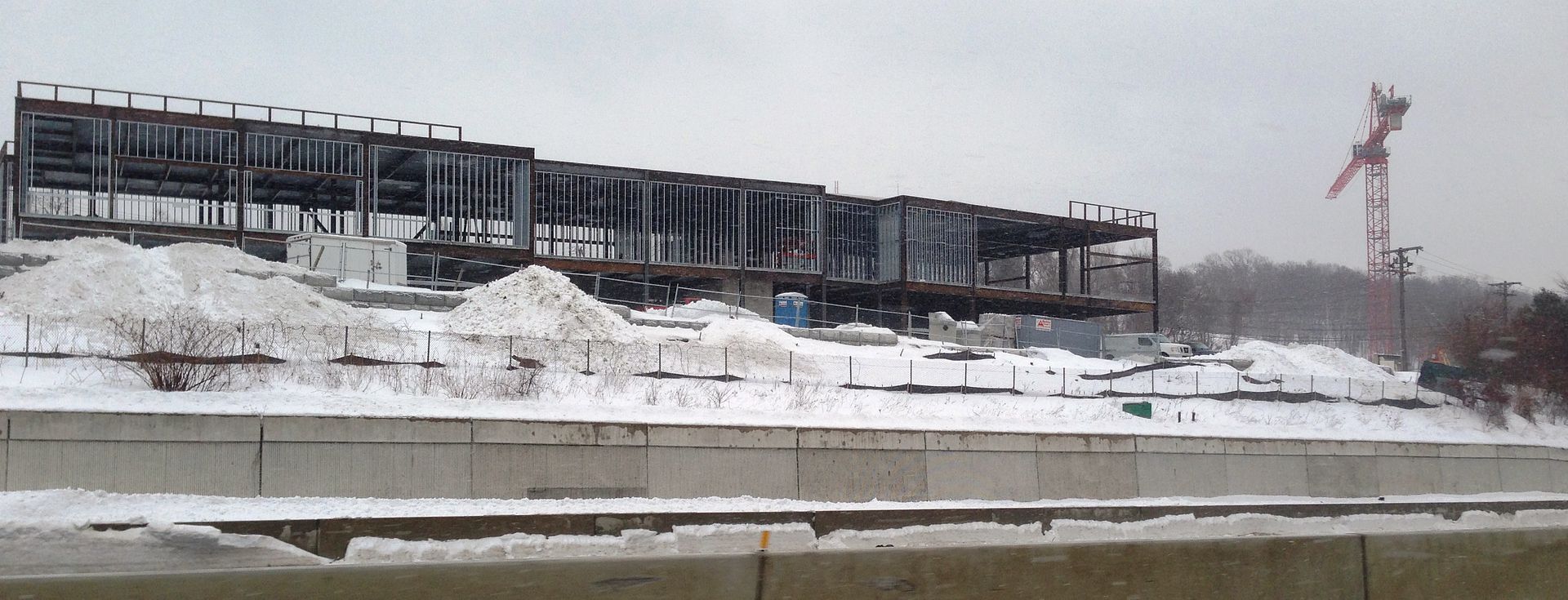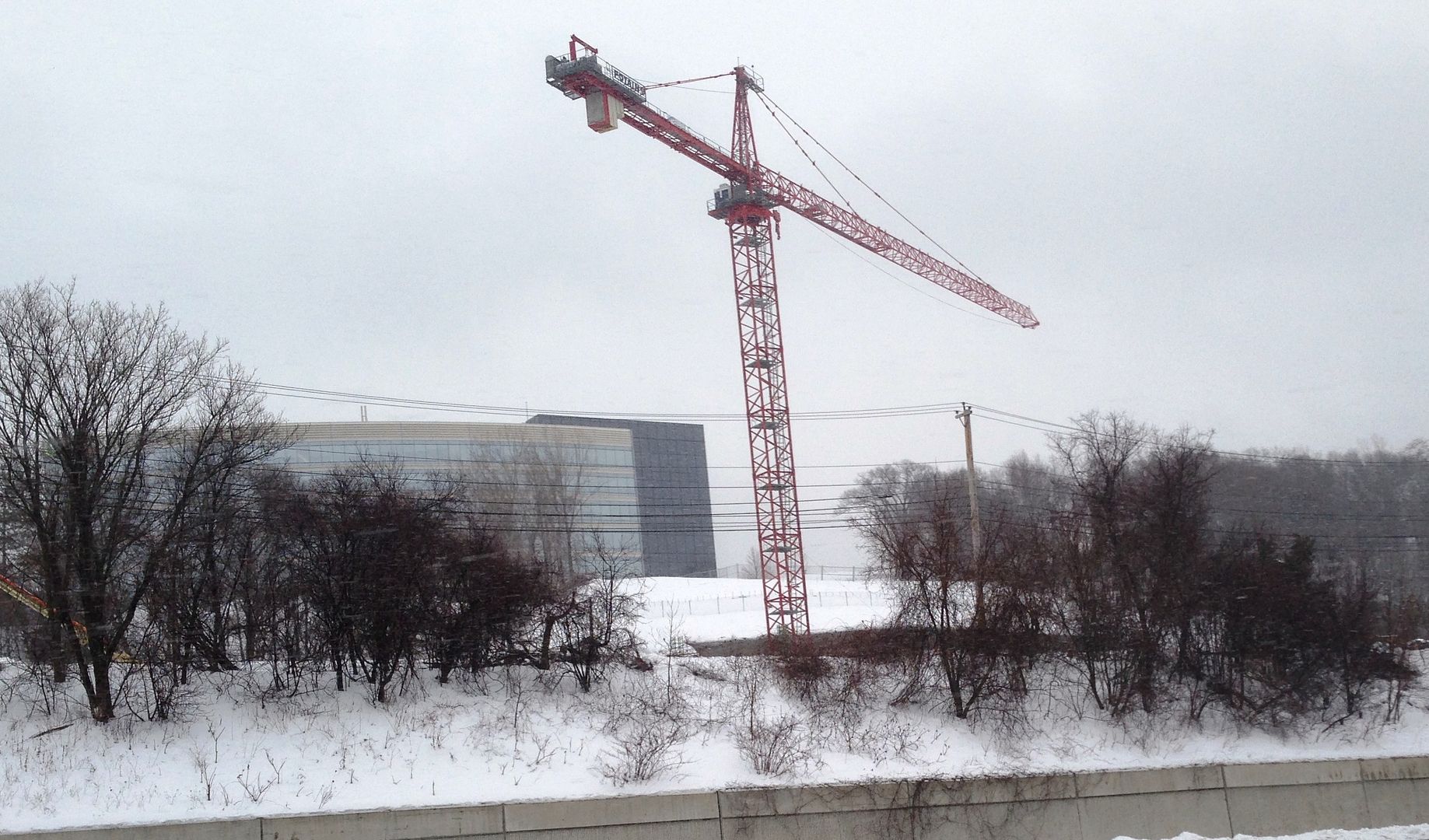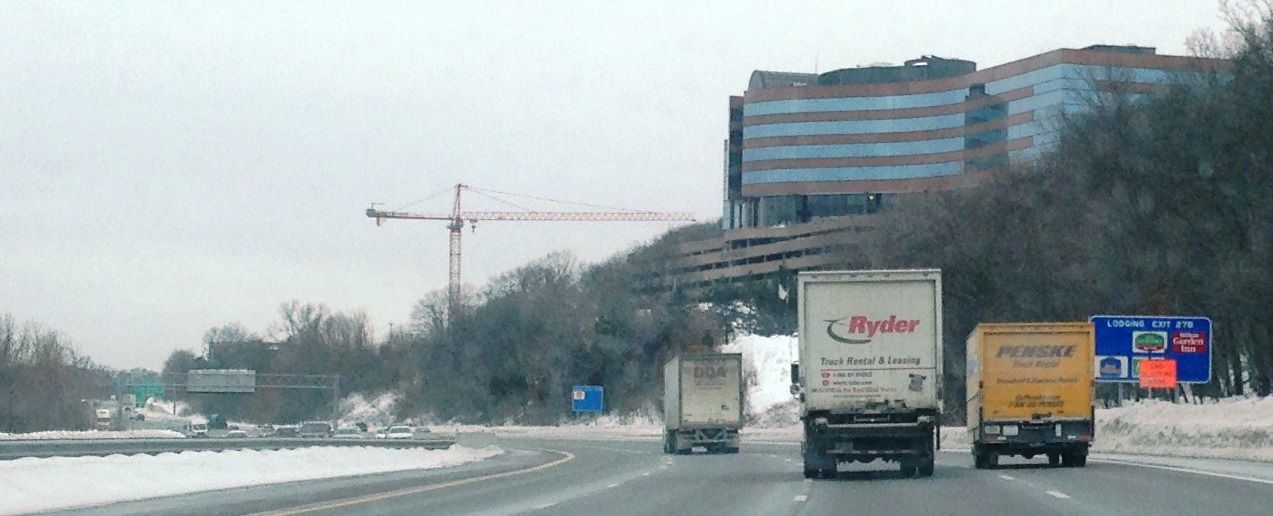You are using an out of date browser. It may not display this or other websites correctly.
You should upgrade or use an alternative browser.
You should upgrade or use an alternative browser.
Route 128 Developments
- Thread starter Boston02124
- Start date
Padre Mike
Active Member
- Joined
- Jan 27, 2007
- Messages
- 681
- Reaction score
- 1
One place it does help immensely is where they've taken out the breakdown to create an exit-only lane and then created a new breakdown lane on the median side. This has helped traffic flow on and off both 93 and 128.
HalcyonEra
Active Member
- Joined
- Mar 6, 2012
- Messages
- 410
- Reaction score
- 8
Does adding a lane to the highway really help anyone out? Feel like it's just more highway for these potential offices and homes to look out on...
It does help. I'm not sure what the exact traffic counts are, but the lane drop from Route 9 to 95 was incredibly short sighted, especially after the Southwest Expressway was cancelled. Even though it is not yet finished, the traffic flow already seems to much better through that stretch.
DigitalSciGuy
Active Member
- Joined
- Apr 14, 2013
- Messages
- 670
- Reaction score
- 421
Does adding a lane to the highway really help anyone out? Feel like it's just more highway for these potential offices and homes to look out on...
Depends where, how far, and what the local road geometry is, but generally lane additions make local traffic worse because of the added road capacity. Just like how the Central Artery 'solved' traffic downtown up to a point and increased pressure on feeder roads. I still watch rush hour traffic on the southern flyover of I93 from my office downtown go for about 4 hours through the evening rush. 315 on A street has a lovely view of the traffic from the gym on the 18th floor.
C
cozzyd
Guest
Lane drops hurt, but you can sometimes fix them by not having the lane in the first place 
- Joined
- Jan 22, 2012
- Messages
- 5,078
- Reaction score
- 1,661
^ Not on 128 though.
Bergeron37
Active Member
- Joined
- Jul 3, 2013
- Messages
- 249
- Reaction score
- 50
I drive 128 everyday from rt. 109 in Westwood to rt 24 - the added lane makes traffic flow 10x better. Having a designated breakdown helps with rush hour traffic immensely.
Boston02124
Senior Member
- Joined
- Sep 6, 2007
- Messages
- 6,893
- Reaction score
- 6,639
Boston02124
Senior Member
- Joined
- Sep 6, 2007
- Messages
- 6,893
- Reaction score
- 6,639
Boston02124
Senior Member
- Joined
- Sep 6, 2007
- Messages
- 6,893
- Reaction score
- 6,639
A couple of months back I had an interesting conversation with the managing partner of one of the major Boston law firms whose practice is focused on VC work and technology companies. He said there has been a significant migration of VC firms and tech companies back into the city from 128, which he felt was due at least in part to the completion of the Big Dig (making it easier for all the decision makers to drive in from Weston, Wellesley, Lexington, etc.) and the growth in the Seaport. Plus, the general sense that the city is where it's at in terms of buzz.
It would be very interesting if over the next couple of decades, 128 and Boston switched roles, with 128 becoming the cheap class B or even C space that used to exist in Ft. Point, while the newly invigorated areas of Boston become the prestigious address that 128 had during the original software and VC boom of the 80s into the 90s. I'm likely overstating this trend for the sake of comparison, but it's worth noting nonetheless.
It would be very interesting if over the next couple of decades, 128 and Boston switched roles, with 128 becoming the cheap class B or even C space that used to exist in Ft. Point, while the newly invigorated areas of Boston become the prestigious address that 128 had during the original software and VC boom of the 80s into the 90s. I'm likely overstating this trend for the sake of comparison, but it's worth noting nonetheless.
Boston02124
Senior Member
- Joined
- Sep 6, 2007
- Messages
- 6,893
- Reaction score
- 6,639
Boston02124
Senior Member
- Joined
- Sep 6, 2007
- Messages
- 6,893
- Reaction score
- 6,639
Boston02124
Senior Member
- Joined
- Sep 6, 2007
- Messages
- 6,893
- Reaction score
- 6,639
whighlander
Senior Member
- Joined
- Aug 14, 2006
- Messages
- 7,812
- Reaction score
- 647
Can't seem to find much written on these two sites in Waltham on 128 near Totten Pond Rd.
Anyone know what is being built on them and by what developer?
Anyone know what is being built on them and by what developer?
Bergeron37
Active Member
- Joined
- Jul 3, 2013
- Messages
- 249
- Reaction score
- 50
My guess would be Boston Properties as they basically own everything in that area
Bos77
Active Member
- Joined
- May 26, 2006
- Messages
- 482
- Reaction score
- 295
Can't seem to find much written on these two sites in Waltham on 128 near Totten Pond Rd.
Anyone know what is being built on them and by what developer?
Here you go - 10 CityPoint and 99 Third Ave.
http://www.bostonproperties.com/pro...WdlGPP7Aww/citypoint-properties-center-center
http://waltham.wickedlocal.com/article/20140807/News/140807827
A couple of months back I had an interesting conversation with the managing partner of one of the major Boston law firms whose practice is focused on VC work and technology companies. He said there has been a significant migration of VC firms and tech companies back into the city from 128, which he felt was due at least in part to the completion of the Big Dig (making it easier for all the decision makers to drive in from Weston, Wellesley, Lexington, etc.) and the growth in the Seaport. Plus, the general sense that the city is where it's at in terms of buzz.
It would be very interesting if over the next couple of decades, 128 and Boston switched roles, with 128 becoming the cheap class B or even C space that used to exist in Ft. Point, while the newly invigorated areas of Boston become the prestigious address that 128 had during the original software and VC boom of the 80s into the 90s. I'm likely overstating this trend for the sake of comparison, but it's worth noting nonetheless.
This is a really interesting idea. The problem of course is transit, how do you draw young, hard-working or tech-entrepreneur types to suburban office developments when these people are living in the city? There are certainly some cases where a reserve commute via commuter rail or bus is possible, but certainly not in all cases.
I am likely in the minority, but at this point in my career I don't think I would take a job that I couldn't access via public transit. Obviously an incredibly enticing offer would suffice to make me change my mind, but it would have to be significant given how much I love being in the city, not driving in traffic (stresses me out, resulting in less years of life), plus I can read while on the bus/train.
I still see this idea as a possibility. I am not convinced that Cambridge/Boston is going to be able to build enough "startup space" (not sure what it's called) to keep start ups from moving outside the core city. The good news (and bad news, depending on your perspective) is that start ups will start or continue gentrifying areas of Dorchester, Allston, etc. in their quest to find cheap space that is still accessible in some form by public transit.
In a better world, we could start building transit connections to office parks in exchange for getting zoning relief/development in the office parks to try and transform them into New Urbanist/Assembly Square type developments. My FAVORITE part of Assembly Square is demonstrating how you can build something significant out of nothing.
I am likely in the minority, but at this point in my career I don't think I would take a job that I couldn't access via public transit. Obviously an incredibly enticing offer would suffice to make me change my mind, but it would have to be significant given how much I love being in the city, not driving in traffic (stresses me out, resulting in less years of life), plus I can read while on the bus/train.
What makes you think this is a minority opinion?
I think it's fairly widely held among people living in Boston and the inner suburbs, which is why the T continues to have patronage and plurality mode share for commutes here.
What makes you think this is a minority opinion?
I think it's fairly widely held among people living in Boston and the inner suburbs, which is why the T continues to have patronage and plurality mode share for commutes here.
Mostly because I am a pessimist when it comes to things I am passionate about. I do hope that you are right
At the risk of getting off-topic, now's the time to start really investing in the T, first to improve and strengthen the service, then to expand it.

